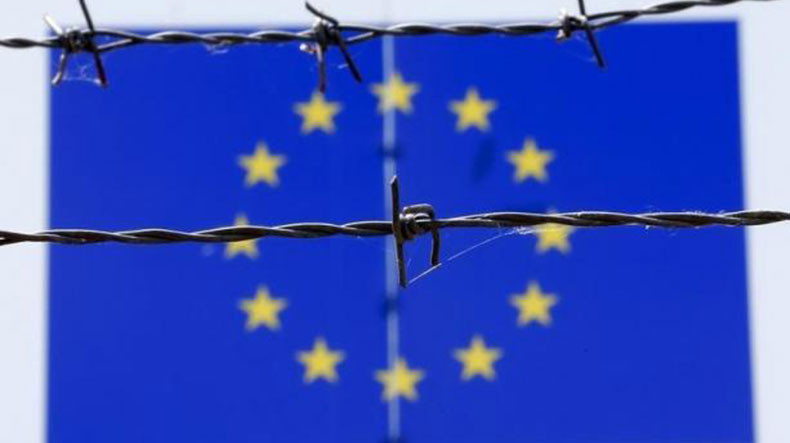
EU closes borders for 30 days to slow coronavirus spread
Leaders of the European Union confirmed the proposed closure of the EU’s external and Schengen borders for at least 30 days on Tuesday, 17 March, as the bloc continued struggling to come up with a unified response to the coronavirus outbreak, EURACTIV reported.
They also decided to establish fast-track lanes at their countries’ frontiers to keep medicines and goods moving. Medical professionals and scientists would be exempt from the travel restrictions.
“To limit the spread of the virus globally, we agreed to reinforce our external borders by applying a coordinated temporary restriction of nonessential travel to the EU for a period of 30 days,” European Council Charles Michel said after the leaders’ three-hour teleconference on Tuesday night.
“We are ready to do everything that is required. We will not hesitate to take additional measures as the situation evolves,” European Commission President Ursula von der Leyen echoed, speaking alongside Michel.
It was the second meeting of this kind in a week, this time together with the heads of Eurogroup and European Central Bank, after EU27 discussed for the first time on 10 March how to coordinate EU efforts to contain the COVID-19 outbreak.
The EU’s executive warned member states that this was just the beginning of the crisis, which Germany said would run for “months rather than weeks”, diplomats said after preparatory talks on Monday evening.
Related news
- Armenia expanding infectious diseases hospital capacity amid coronavirus outbreak
- Turkey confirms first coronavirus death
- Euro 2020 postponed until next summer amid coronavirus pandemic
- Armenian Foreign Ministry advises citizens not to travel abroad over coronavirus
- Armenia bans entry of citizens from 16 coronavirus-hit countries
- Coronavirus: Lidl and Tesco Ireland announce dedicated shopping hours for elderly
- Coronavirus situation in various parts of Armenia
- China reports just one new domestic case of coronavirus in a day
- Macron on coronavirus: ‘We’re at war’
Newsfeed
Videos






























